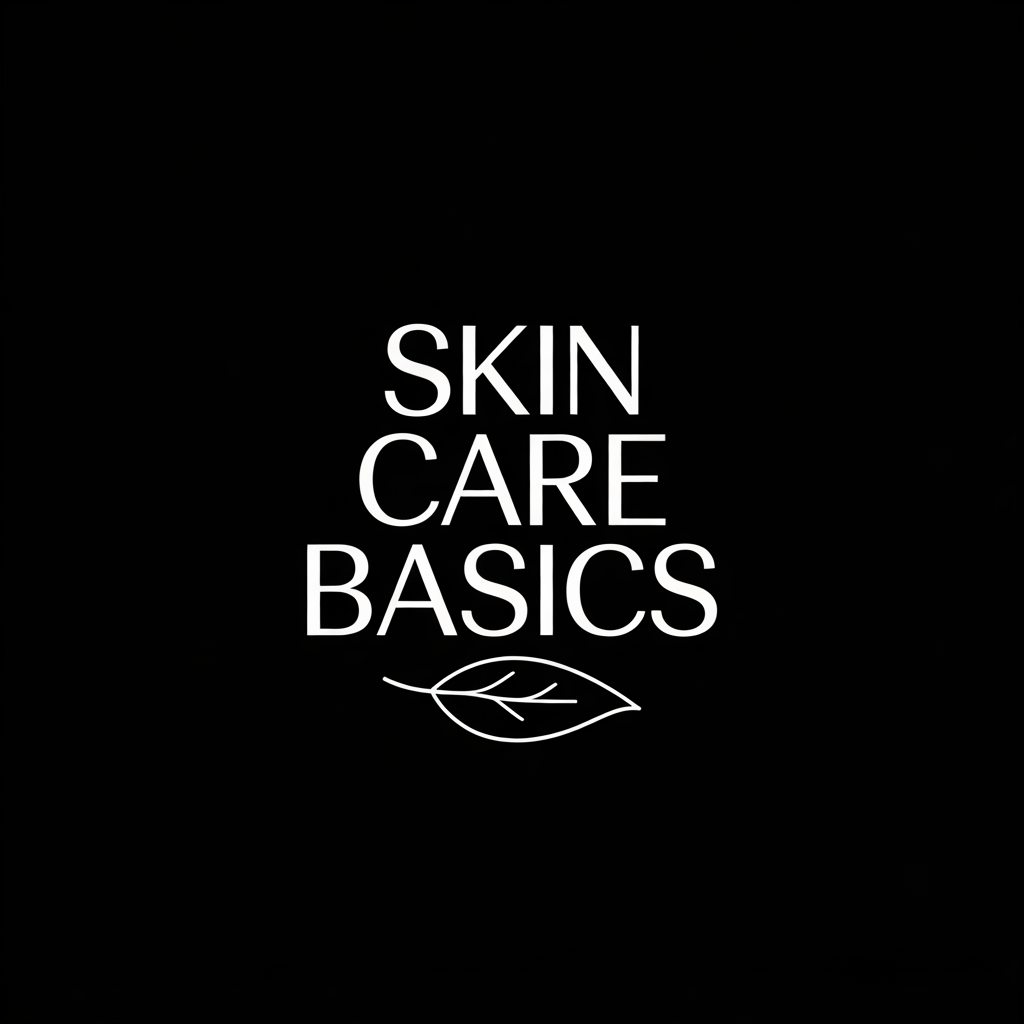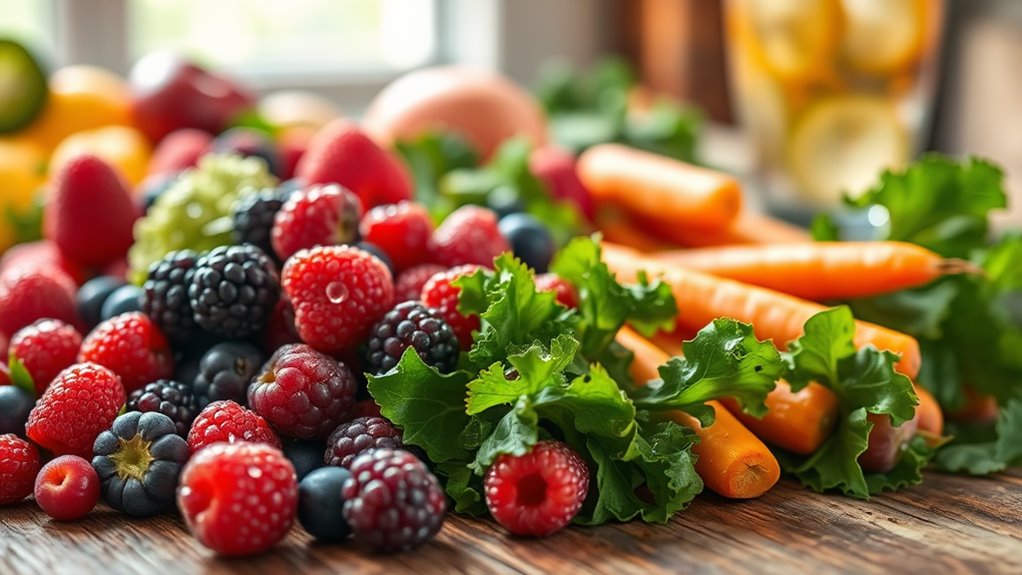Can You Really Eat Your Way to Better Skin. Here’s the Truth
Did you know that nearly 80% of your skin’s health is influenced by what you eat? This statistic highlights the significant role diet plays in maintaining your complexion. By incorporating specific nutrients, you can potentially enhance your skin’s appearance and tackle issues like acne and dryness. But what exactly should you be consuming for optimal results? The answers might surprise you.
Key Takeaways
- A balanced diet rich in vitamins, minerals, and antioxidants enhances skin health and promotes a clearer, more vibrant complexion.
- Nutrient-dense foods like fruits, vegetables, and healthy fats support skin hydration, repair, and reduce inflammation, improving overall skin condition.
- Processed foods high in sugar and unhealthy fats can trigger inflammation, exacerbating skin issues like acne and eczema.
- Hydration is crucial; adequate water intake and water-rich foods maintain skin elasticity and prevent dryness.
- Myths surrounding specific foods, like chocolate or oily foods causing acne, are often misleading; individual responses vary, emphasizing the importance of a nutrient-rich diet.
The Science Behind Diet and Skin Health
How does what you eat influence your skin’s appearance?
Your diet for healthy skin plays a crucial role in its overall health and radiance.
Consuming foods rich in antioxidants, such as fruits and vegetables, helps combat oxidative stress, which can lead to premature aging.
Omega-3 fatty acids found in fish and nuts support skin hydration and barrier function.
Conversely, high sugar and processed food intake can trigger inflammation, leading to breakouts and dullness.
By choosing nutrient-dense options and avoiding inflammatory foods, you can promote a clearer, more vibrant complexion.
Ultimately, your food choices directly affect your skin’s condition and vitality. Additionally, the connection between diet and skin health is supported by numerous studies that highlight the importance of nutrition in dermatological well-being.
Essential Nutrients for Radiant Skin
Your skin thrives on a variety of nutrients that support its structure and function.
Key vitamins like A, C, and E are crucial for skin health; vitamin A promotes cell turnover, while vitamin C aids collagen production, and vitamin E offers antioxidant protection.
Essential fatty acids, particularly omega-3s, help maintain skin barrier function, reducing dryness and irritation.
Additionally, minerals like zinc and selenium play vital roles in skin repair and inflammation reduction.
Hydration is equally important, as water helps maintain elasticity and suppleness. Furthermore, incorporating nutrient-rich foods into your diet can significantly enhance your skin’s appearance.
Foods That Promote Clear Complexion
To achieve a clear complexion, incorporating antioxidant-rich fruits, healthy fats, and proper hydration into your diet is essential. These foods not only combat oxidative stress but also support skin barrier function and moisture retention. Additionally, eliminating sugar from your diet can lead to significant improvements in skin appearance, including enhanced skin texture and clarity.
Antioxidant-Rich Fruits
Antioxidant-rich fruits play a crucial role in promoting a clear complexion by combating oxidative stress and reducing inflammation.
These fruits are packed with vitamins and phytochemicals that enhance your skin’s health.
Incorporating them into your diet can yield visible benefits.
Here are three fruits that stand out:
- Blueberries – High in antioxidants, they help neutralize free radicals, protecting your skin from damage.
- Kiwi – Rich in vitamin C, it boosts collagen production, improving skin elasticity and brightness.
- Pomegranates – Containing polyphenols, they reduce inflammation and promote skin regeneration.
Add these to your meals for healthier skin!
Healthy Fats Benefits
How can healthy fats contribute to a clearer complexion?
Consuming sources of healthy fats, like avocados, nuts, and fatty fish, helps maintain your skin’s lipid barrier, which keeps moisture in and irritants out.
Omega-3 fatty acids, found in fish and flaxseeds, reduce inflammation, potentially minimizing acne flare-ups.
These fats also enhance skin elasticity and hydration, leading to a plumper appearance.
Additionally, vitamins E and D, often present in healthy fats, protect against oxidative stress, promoting overall skin health.
Hydration and Skin Health
What if the secret to vibrant skin lies in the simple act of hydration?
Staying hydrated not only quenches your thirst but also enhances your skin’s elasticity and overall appearance.
Research indicates that adequate water intake can reduce dryness and promote a clear complexion.
Incorporate these foods into your diet for optimal skin hydration:
- Cucumbers – Composed of 95% water, they refresh and hydrate your skin.
- Watermelon – Rich in antioxidants and vitamins, it helps maintain moisture levels.
- Celery – High in water content, it supports skin elasticity and reduces puffiness.
Your skin will thank you!
Debunking Common Myths About Skin and Diet
When it comes to skin health, many people hold onto misconceptions about the impact of diet.
For instance, some believe that chocolate directly causes acne, but research shows that individual responses vary.
Another myth suggests that oily foods lead to oily skin; however, skin oiliness is largely influenced by genetics and hormones.
It’s also a common belief that all dairy triggers breakouts, yet studies indicate that only certain dairy products may affect specific individuals.
Understanding these myths helps you make informed dietary choices, allowing you to focus on nutrient-rich foods that genuinely support skin health, like fruits, vegetables, and healthy fats. Additionally, maintaining a balanced diet can help regulate hormonal balance, which is crucial for achieving healthier skin.
The Role of Hydration in Skin Wellness
Hydration plays a crucial role in maintaining skin health, as adequate water intake helps preserve your skin’s elasticity and suppleness. When you’re dehydrated, your skin can appear dull and more prone to irritation and wrinkles. Incorporating hydrating foods, like fruits and vegetables, can significantly enhance your overall hydration levels and support your skin’s wellness. Additionally, essential winter skincare tips recommend using a humidifier to combat dry air and further protect your skin during colder months.
Importance of Water Intake
How crucial is water for maintaining healthy skin?
Staying hydrated is essential for skin wellness.
Water helps maintain your skin’s elasticity, supports cellular function, and promotes a radiant complexion.
Here are three key benefits of adequate water intake:
- Regulates Body Temperature: Hydration helps your body maintain optimal temperature, which can reflect on your skin’s appearance.
- Enhances Nutrient Delivery: Sufficient water facilitates the transport of nutrients to skin cells, promoting healing and regeneration.
- Boosts Skin Barrier Function: Proper hydration strengthens the skin’s barrier, protecting against pollutants and preventing moisture loss.
Prioritize water for vibrant, healthy skin!
Effects of Dehydration
Dehydration significantly impacts skin health, leading to a range of undesirable effects.
When you’re dehydrated, your skin can become dry, flaky, and less elastic, which may accelerate the appearance of fine lines and wrinkles.
Studies show that inadequate water intake reduces skin barrier function, making it more susceptible to irritants and allergens. Additionally, dehydrated skin can lead to an increase in oil production, which may result in breakouts.
Maintaining proper hydration supports skin elasticity and overall appearance, ensuring your complexion stays vibrant and healthy. So, prioritize your water intake for optimal skin wellness.
Foods for Hydration
What if you could boost your skin’s health simply by eating the right foods?
Staying hydrated is crucial for maintaining skin elasticity and preventing dryness.
Incorporating hydrating foods into your diet can enhance your skin’s appearance and function.
Here are three foods that can help:
- Cucumber: Composed of 95% water, it’s perfect for hydration and contains antioxidants.
- Watermelon: This fruit is 92% water and packed with vitamins A and C, promoting skin repair.
- Celery: With high water content, celery also provides essential vitamins and minerals that support skin health.
Stay hydrated, and your skin will thank you!
Impact of Processed Foods on Skin Condition
Do you ever wonder how processed foods affect your skin’s health?
Research shows that these foods often contain high levels of sugar, unhealthy fats, and additives, which can trigger inflammation and exacerbate skin conditions like acne and eczema.
The glycemic index of processed foods can cause blood sugar spikes, leading to increased oil production and clogged pores.
Additionally, artificial preservatives and trans fats can diminish skin elasticity and promote premature aging.
By understanding these impacts, you can make more informed choices about your diet, ultimately supporting healthier skin and overall well-being.
Prioritizing whole foods can significantly improve your skin’s condition.
Tips for Creating a Skin-Friendly Meal Plan
After recognizing the detrimental effects of processed foods on skin health, it’s important to focus on strategies that promote a skin-friendly diet.
Here are three tips to guide your meal planning:
-
Incorporate Antioxidant-Rich Foods: Include fruits and vegetables like berries, spinach, and carrots that combat oxidative stress and improve skin elasticity.
-
Prioritize Healthy Fats: Opt for sources like avocados, nuts, and fatty fish to support skin barrier function and hydration.
-
Stay Hydrated: Aim for at least 8 glasses of water daily to maintain skin moisture and flush out toxins.

